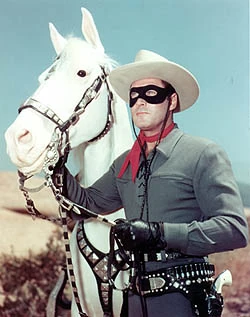Did you ever wonder why God gave His people feasts to observe for all generations? Each feast commemorates something specific and most have to do with agricultural events. There were spring feasts and fall feasts. The feasts were not suggestions for the children of Israel, but commands. In fact, for 3 feasts, each year, every Hebrew male was required to present himself before God, at the Temple in Jerusalem.
Was this something God did just to keep everyone busy or was there a deeper purpose?
As we study scripture, we quickly learn, from the earliest chapters of Genesis, the Bible is God's story of the fall and redemption of mankind.
We are all familiar with the story of the fall of Adam and Eve. After Adam and Eve rebelled, God provided covering for them with animal skin and promised, in Genesis 3, the Seed of Woman would defeat Satan, once and for all.
Next, in Genesis 6, man's bloodline was corrupted by rogue angelic beings who rebelled against God and impregnated human women, forming a corrupt race of giants. To preserve the human bloodline, necessary to fulfill His promise in Genesis 3, God wiped the earth clean with a flood and restarted humanity through Noah, a man, we are told, who was "perfect in all his generations." Perfect in all his generations was not referring to Noah's good behavior but, rather, his undefiled genetics.
Not long after the flood, man rose up in rebellion against God and built a tower, in an effort to declare independence from God. God destroyed the work, confused the languages and ultimately, divided the earth into nations.
Contemporary with the time immediately after the Tower of Babel debacle, God called a man named Abram and promised to establish a mighty nation through him and by this mighty nation, God also promised to bring redemption to mankind.
Notice the pattern, man rebels yet God makes a way for man to be in fellowship with Him. In the same way, God gave us remembrances to remain mindful of Him and of the promises He made. The Feasts of Israel were given for just such a purpose.
One feast, the Feast of Tabernacles, also referred to as Sukkot, is a time set aside by God for His children to commemorate. As Christ followers, we are not commanded, at this time, to keep the Feast of Tabernacles, but as Christ followers we get to keep the Feast!
You may ask, "why would I want to?" Well... let me tell you.
For Israel, Sukkot commemorates God's preserving the nation through 40 years of wandering in the desert, on the way to the Promised Land. For the follower of Christ, it is a good reminder of the indwelling of the Holy Spirit, as God tabernacles with us through the indwelling.
Many may not know this: the Feast of Tabernacles is the one feast every nation will be required to observe during the Kingdom age. Zechariah 14:16-19 And it shall come to pass that everyone who is left of all the nations which came against Jerusalem shall go up from year to year to worship the King, the Lord of hosts, and to keep the Feast of Tabernacles. And it shall be that whichever of the families of the earth do not come up to Jerusalem to worship the King, the Lord of hosts, on them there will be no rain. If the family of Egypt will not come up and enter in, they shall have no rain; they shall receive the plague with which the Lord strikes the nations who do not come up to keep the Feast of Tabernacles. This shall be the punishment of Egypt and the punishment of all the nations that do not come up to keep the Feast of Tabernacles.
When Messiah comes, all nations will be required to keep the Feast of Tabernacles and every nation will be required to send a representative to Jerusalem for the feast each year. Any nation not sending a representative will receive no rain for a year.
God, obviously thinks the Feast of Tabernacles is a pretty big deal. If God thinks it's a big deal, we probably should too. Unfortunately, many believers have no idea about most of the feasts of the Lord.
The most exciting part about the Feasts of the Lord is the connection to the ministry of Messiah. The Spring Feasts: Passover, First Fruits and and Pentecost all found fulfillment in the earthly ministry of Jesus Christ. On Passover He died (Lamb of God), on First Fruits He rose (First born from the grave) and on Pentecost the Church age began (ingathering of the Wheat).
It only stands to reason, the fall feasts will find fulfillment when Messiah comes to establish His Kingdom. Many scholars believe Messiah was born during the Feast of Tabernacles and will return on the Feast of Tabernacles to rule and reign for 1000 years. God's physical presence, in the person of Messiah, shall dwell, or tabernacle, with His people. Israel shall be restored - all twelve tribes. Peace will not only exist in Israel but will emanate from Jerusalem, the City of Peace.
When one considers all the meaning God packed into the Feast of Tabernacles, it becomes apparent this is a feast worth observing. In a few days, Orthodox Jews all over the world will be putting up temporary shelters and enjoying a week of great fellowship and mirth. I still remember seeing booths made of palm fronds decorating the driveways of an Orthodox neighborhood I worked in, many years ago, in South Florida. The families observing the feast would eat meals in the booths and invite friends and relatives over for festivities.
For 2020, Sukkot begins on October 3rd and runs through October 9th. If you get a chance, set aside at least one of those days, have a meal outside in a pavilion or under a dining tent and ponder God's promise to one day tabernacle among us. Spend some time in the Torah, have a little worship, enjoy a little fellowship and look up for our redemption is nigh.
Now, go live as Christ... and give the devil hell!








